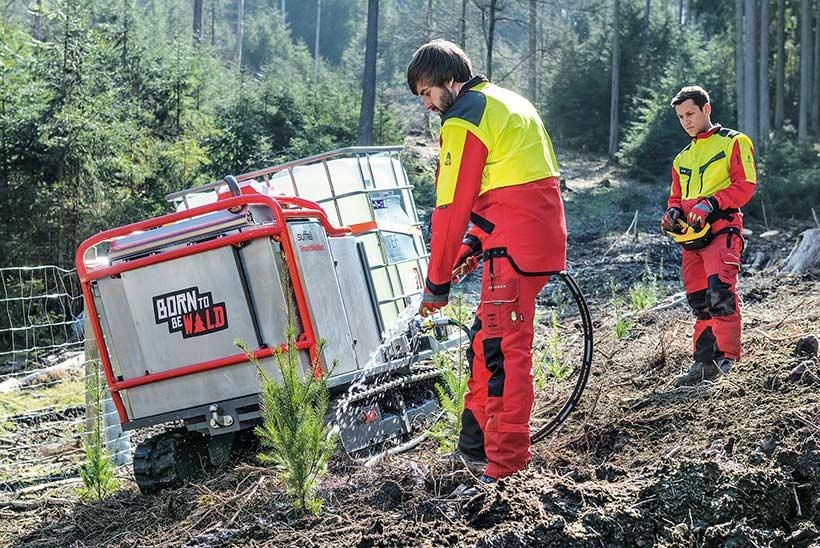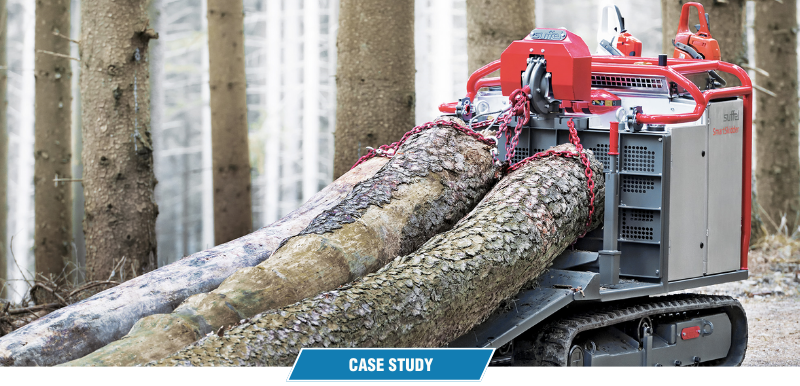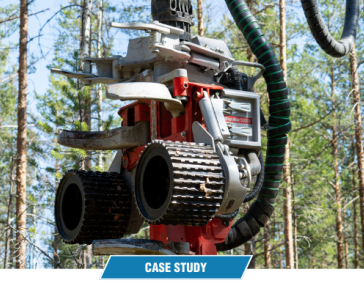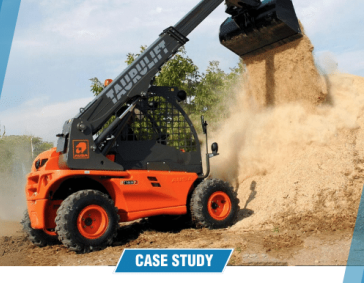[Case Studies] Suffel’s Smartskidder And Its Poclain Winch: Enhancing Forest Care
In protected forests and parks, trees are selectively cut down to protect the development of the forest. Occasionally, factors such as windstorms or insect infestations require the removal of a few trees. In Europe, it is done using motor-manual techniques, to avoid the cost and damage made by large tree harvesters.
To assist the manual felling work done by the logger, Suffel has introduced an innovative radio-controlled tracked wood forwarder, the Smartskidder. Its winch is powered by an MS08 shaft motor.
Radio-controlled wood forwarder
With 30 years of experience in supplying hydraulic systems for forestry machines, Suffel has a deep understanding of the application’s requirements. They designed a radio-controlled vehicle that meets the requirements of working in protected natural environments. The SmartSkidder weighs only 1.6 tons, which helps protect the forest floor. Its compact size allows it to access tight spaces and be easily transported on a small trailer. Its radio remote control enables the logger to handle timber from a safe distance.

A lightweight vehicle with a powerful winch
For the task of towing felled trees, the Smartskidder is outfitted with a winch powered by a Poclain MS08 motor. This winch can handle loads of up to four tons, which is more than double the Smartskidder’s weight. The MS08 motor provides precise control and infinitely variable speed, enabling operators to finely tune the winch’s pulling force, especially on uneven terrain, ensuring alignment between the Smartskidder’s path and the rope or cable. Since the system lacks a gearbox, it enhances reliability and simplifies maintenance.
Currently, there are 23 Smartskidders in active use, and their adoption is steadily increasing, as Suffel presents the model at tradeshows in Europe. Its versatility and lightweight design also make it suitable for tasks such as tree watering and handling minor forest fires, thus opening it to additional market opportunities. In protected forests and parks, trees are deliberately cut down to protect the development of the forest.
Visit us on Agritechnica, Hannover, Germany, November 12-18, booth #B16, hall 16






